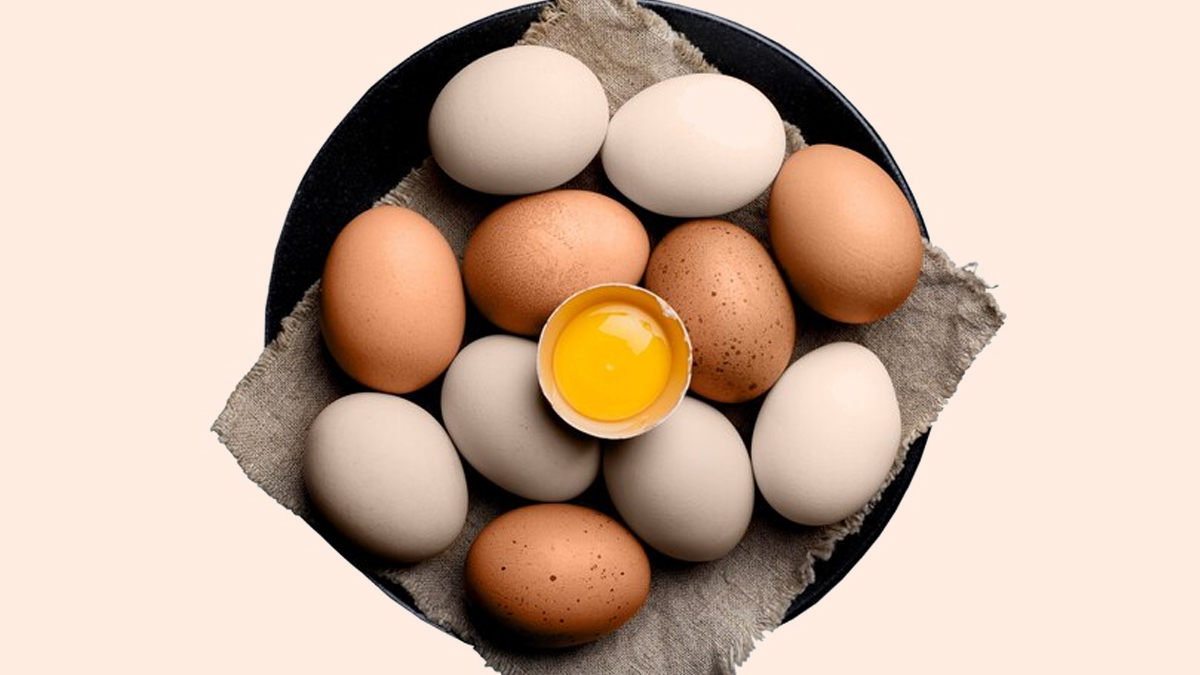
Which came first, the egg or the hen? While this age-old debate remains unsolved, we’re here to crack open another pressing question, is an egg vegetarian or non-vegetarian?
The answer isn’t as simple as it seems. Eggetarians proudly claim eggs as vegetarian, non-vegetarians couldn’t care less as long as they’re on the plate, vegetarians firmly believe eggs belong in the non-veg category, and vegans? Well, they don’t want to be part of this conversation at all. So, where does the humble egg truly belong? Let’s break it down with the help of an expert.
Table of Content:-
To get an answer for this age-old question, OnlyMyHealth team interacted with Dr Addu Kiranmayi, Senior Clinical Nutritionist at Rainbow Children’s Hospital, sheds light on this topic, offering clarity on the classification of eggs and their role in a vegetarian diet.
What Defines a Vegetarian Diet?
Vegetarianism is broadly defined as a diet that excludes any form of animal flesh, including the tissue, muscles, or meat of an animal. According to Dr Addu Kiranmayi, “By definition, vegetarianism is classified as excluding any form of animal flesh (the tissue, muscles or meat of an animal). The humble egg doesn’t fall into this category and is therefore included in a vegetarian eating pattern.”
This means that, technically, eggs are considered vegetarian because they are not meat. However, there is still debate over their classification due to their origin from chickens, leading to variations in how different vegetarian groups perceive them.
Different Types of Vegetarian Diets

Not all vegetarians eat the same way, and dietary preferences vary based on individual beliefs, cultural backgrounds, and nutritional choices. Dr Addu Kiranmayi explains the different types of vegetarian diets:
- Ovo-vegetarian: Avoids meat, fish, and dairy but includes eggs.
- Lacto-ovo vegetarian: Avoids meat and fish but includes eggs and dairy.
- Lacto-vegetarian: Avoids eggs, meat, and fish but includes dairy.
- Vegan: Avoids all animal and animal-derived products, including meat, fish, eggs, dairy, and often other items such as honey.
For ovo-vegetarians and lacto-ovo vegetarians, eggs are an essential part of their diet, providing important nutrients that may be lacking in plant-based foods.
Also read: Boiled Chickpeas And Eggs: Do They Make A Healthy Breakfast Combination?
Why Do Some People Consider Eggs Non-Vegetarian?

Despite their technical classification as vegetarian, eggs are not universally accepted by all vegetarians. In many Eastern cultures, particularly in India, eggs are often considered a form of meat. “In some parts of the world, eggs are customarily considered to be a form of meat, and some vegetarians will not eat them. Often, this is tied to religious practices, such as Hinduism. So, while most Westerners accept that eggs are a suitable inclusion in a vegetarian diet, many Eastern cultures don’t; pertaining to whether or not eggs are suitable is reliant on cultural understanding and interpretation,” says Dr Addu Kiranmayi.
For example, many Hindus who follow a vegetarian diet exclude eggs because they are derived from an animal, even though they do not contain developing embryos. Similarly, some Jains and Buddhists also avoid eggs due to their dietary and ethical beliefs.
Also read: Eggs: Whites, Yolk Or Whole, Here's The Healthiest Way For You To Consume Them
Nutritional Benefits of Eggs for Vegetarians
Regardless of their classification, eggs are a powerhouse of nutrition and can be highly beneficial for vegetarians who choose to include them in their diet. Dr Addu Kiranmayi highlights the key nutrients found in eggs:

- High-Quality Protein: Eggs contain all nine essential amino acids, making them a complete protein source, which is particularly beneficial for vegetarians who do not consume meat.
- Vitamin B12: This vitamin is primarily found in animal products, and eggs are one of the few vegetarian sources. B12 is crucial for nerve function and red blood cell production.
- Iron: Essential for oxygen transport in the blood, iron is often lower in vegetarian diets, and eggs can help bridge this gap.
- Omega-3 Fatty Acids: These healthy fats are important for brain function and heart health. While they are commonly found in fish, eggs (especially those from hens fed an omega-3-rich diet) can be a good alternative for vegetarians.
Dr Addu Kiranmayi emphasises, “Eggs can be particularly useful for vegetarians as they are a good source of some of the key nutrients that can otherwise be low in this type of diet, including omega-3s, vitamin B12 and iron.”
Conclusion
Whether eggs are vegetarian or not ultimately depends on cultural beliefs, personal dietary choices, and religious practices. From a nutritional standpoint, eggs are an excellent source of protein and essential nutrients, making them a valuable inclusion in many vegetarian diets. However, for those who adhere strictly to lacto-vegetarian or vegan principles, eggs remain off the menu. So, while science may classify eggs as vegetarian, their acceptance largely depends on individual perspectives and traditions.
Also watch this video
How we keep this article up to date:
We work with experts and keep a close eye on the latest in health and wellness. Whenever there is a new research or helpful information, we update our articles with accurate and useful advice.
Current Version